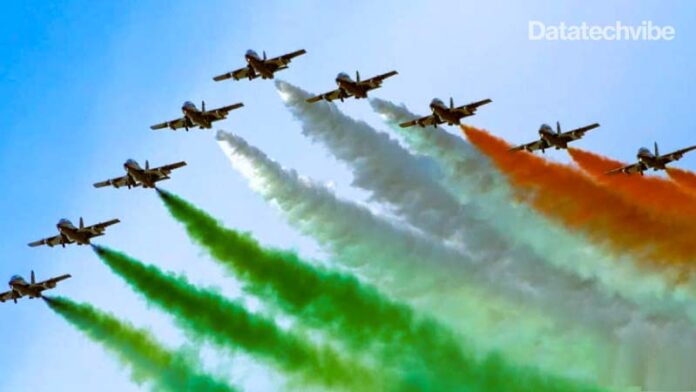The Defence Acquisition procedures (DAP) are required to adapt to the way AI solutions are developed and evolved, which is very unlike the way conventional defence equipment is inducted.
Indian Air Force (IAF) has been exploring the feasibility of improving fighter jet capabilities in threat perception and threat engagement. In an e-symposium on Artificial Intelligence for Air Warriors, Chief of Air Staff Air Chief Marshal RKS Bhadauria brought out the significance of Artificial Intelligence (AI) for IAF operations, not only for the aircraft applications but also in other support roles. The e-symposium was organised by Society for Aerospace, Maritime and Defence Studies (SAMDeS) through the industry body FICCI.
The non-military domain technologies are finding a place in the fighting forces and AI too is following a similar curve. AI has seen exponential growth in the commercial sector and militaries world over are racing towards imbibing these advanced technologies for their war-fighting capabilities.
According to the Air Chief, numerous initiatives to automate the processes to improve the efficiency of operations for aircraft maintenance have been carried out in the past. A large amount of digitisation already has taken place through electronic management systems. IAF has now commenced its journey to explore AI and AI-based applications on similar projects related to the maintenance of aircraft. IAF is presently working on predictive maintenance and the use of AI for predictive threat scenarios.
He also highlighted that AI requires some more work to be allowed to be permitted to participate in autonomous missions, however, multiple applications like in making the OODA (Observe, Orient, Decide, Act ) loop of C4I more efficient for Air Combat role etc.
According to Milind Kulshreshtha, a C4I expert who has worked on the development of the indigenous Naval C4I Combat Management systems, AI is already finding its way into warfighting applications, and such niche solutions are available with only a few nations and China happens to be one of them. ‘AI brings capability enhancements that are unimaginable with the present conventional technologies and some of the aspects are humanly impossible. India needs to speed up the inclusion of AI in its Armed Forces to remain contemporary. AI algorithms can be created ab-initio since for some time to come, AI-based military solutions are not likely to be made available for purchase by any of the nations possessing them, he said.
Also Read: How To Position Your Organisation For Success With Cloud
According to Kulshreshtha, the challenges today are availability of correct data sets to train and test these MIL grade AI solutions, MIL Standard test procedures and most importantly, Smart Server within India to maintain information confidentiality for such strategic data. ‘The man-in-the-loop as seen in other C4I systems shall keep these solutions soft-real time for the IAF applications, which is the right direction (since associated autonomous techniques are not yet mature). Within the next few years, IAF shall have UAVs flying as part of the missions, and AI shall assist in making UAVs more and more autonomous in the formation flying missions,’ he added.
The Defence Acquisition procedures (DAP) are required to adapt to the way AI solutions are developed and evolved, which is very unlike the way conventional defence equipment is inducted. However, it is a race against time for India to make the weapon platforms AI capable in operations and Armed Forces leadership has to see beyond the administrative issues. It is apparent from the points highlighted by IAF members; they seem to have got the correct vision to make it possible to put AI in Air Combat operations
AI for IAF Aircraft Maintenance
‘These mature AI solutions are already implemented successfully in the commercial domain. And, AI is likely to be implemented in Air Combat. The predictive maintenance alerts and planning for aircraft shall improve efficiency, reduce unintended downtimes and enhance equipment reliability. IAF shall do well to implement this AI-based solution, while the research on other aspects like AI-based combat solutions etc. is in progress’, he added.
Ethics of AI in Combat
Mr Kulshreshtha said, ‘The issues related to ethics of making AI-based self-motivated autonomous killing machines are already being debated world over, and reaching the ultimate goal of success of AI in Air Operations one day may come back to haunt humanity. Therefore, such safeguards need to be designed in the system, and ensured that the AI warfare solutions are not able to break such safeguards or inter-locks in any time future but, unfortunately, this is a paradox which the AI experts shall forever struggle with.’
( With Inputs From Agencies)









